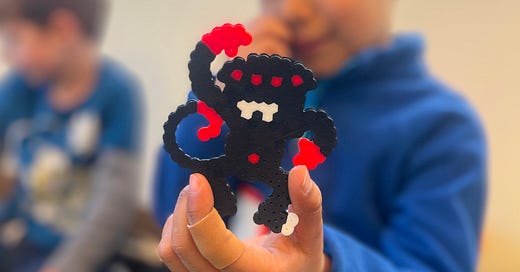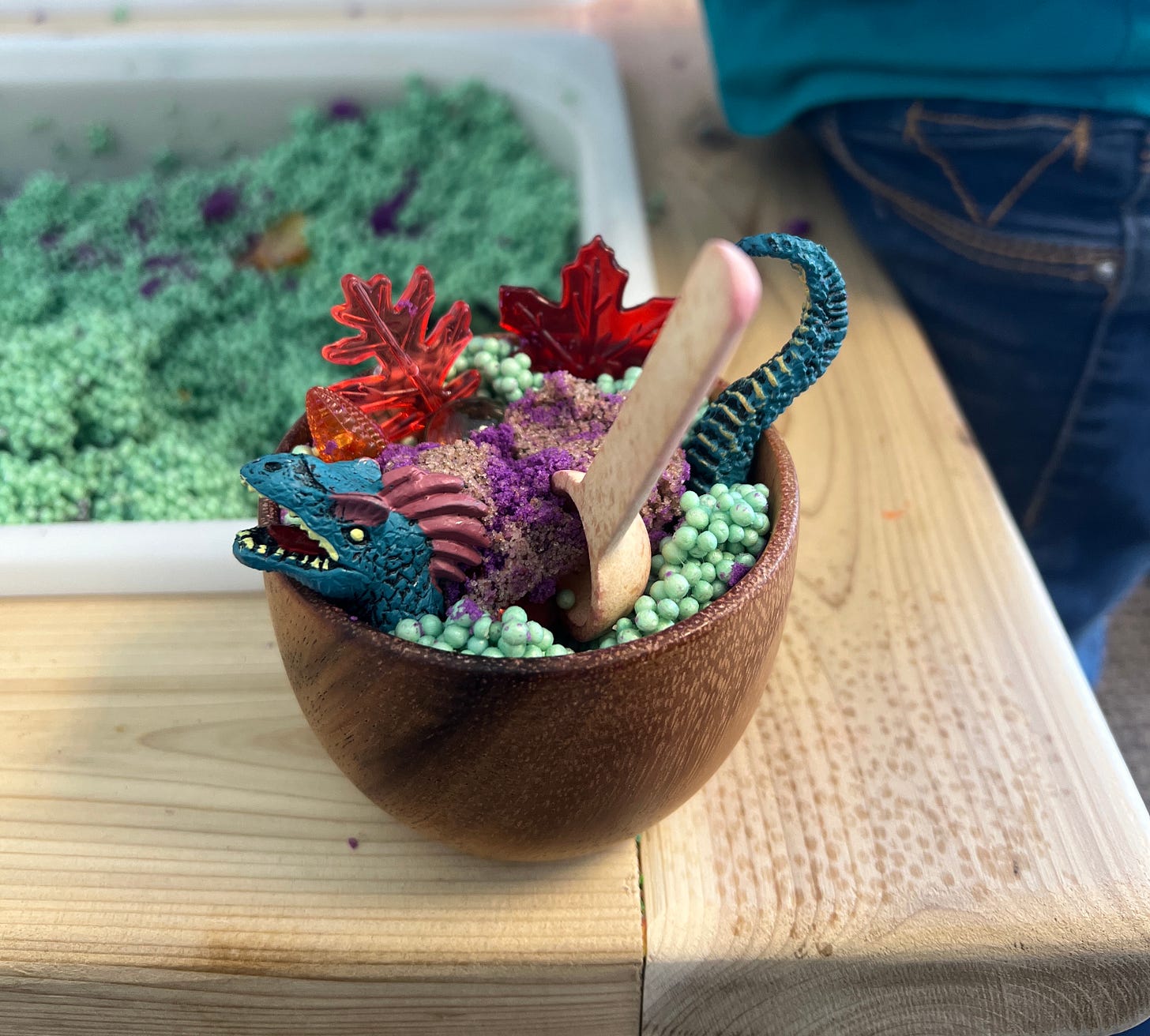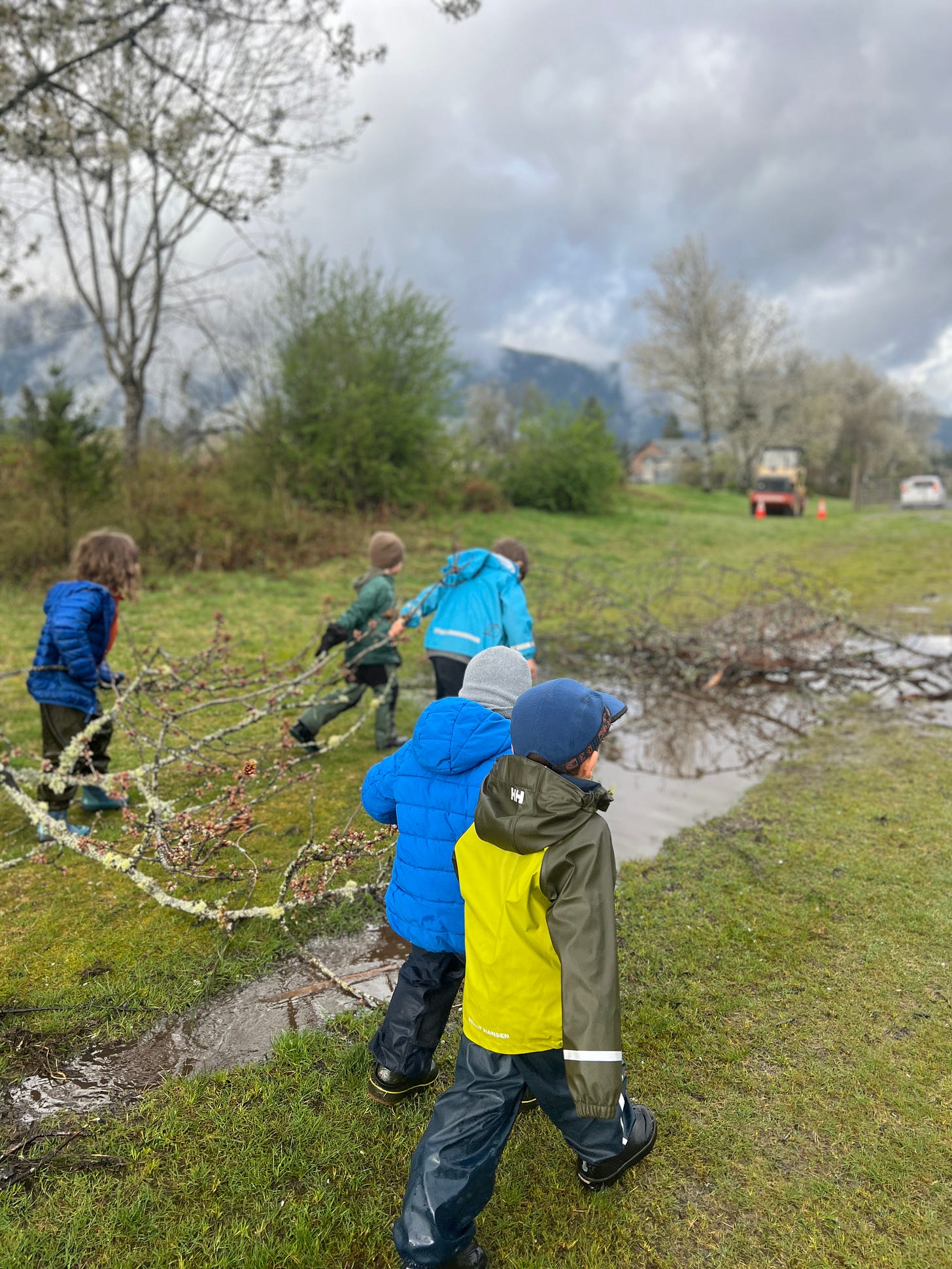For the past couple years, I've been deeply curious about the question: how might I live in a way that honors who I actually am? The answer that’s been emerging is something like, "By treating life as a series of experiments in bounded freedom."
If you've read my previous post, you know I've been organizing myself around various experiments. Today I want to share some updates on the most recent one.
Context: Burnout
In February of 2024, before I wrote my first Substack essay. It was called On Playing Finite Games Against My Will: Will work stress me out forever?
I love to work. I love to do projects, to be useful, to ‘create value.’ I especially love creating meaningful things—art, homes, systems, plans, games, relationships, websites, conversations. I love thinking through complex challenges in new ways, especially in collaboration with respectful people who don’t make me want to escape through the nearest window.
I don’t love paying bills, but I do love being able to pay them. I love feeling like someone who contributes to the world at least as much as they take. I love taking care of people I know. I love oatmilk lattes and the occasional adventure.
I have high motivation to work.
Unfortunately, most work also involves a lot of things I hate: talking to strangers; specializing; needing to seem ‘professional’ or ‘authoritative’; ruthless productivity; rugged individualism; turning seasons into ‘quarters’ and days into minutes; self-generating checklists made up of tasks I find neither interesting nor important; wearing pants.
Most of all, I hate having to do things, over and over again with no end in sight, that I neither care about nor understand on my own terms. Making money was one of those things.
Inevitably, I burned out. After 13 years of trying to figure out how to make money in a way that didn’t kill my soul (and, to be fair, learning and enjoying lots of things along the way), I found myself in late 2024 simply incapable of trying anymore. My body got loud. My brain went fuzzy. My motivation packed its bags and disappeared.
So I did what any self-respecting invalid would do: I went on sabbatical. Not to stop making money for a short time. To give up the project of figuring out how to make money entirely, and figure out what I actually wanted to figure out instead.
Experiment: Emerging from sabbatical
By January, I started feeling confident about starting to redefine work for myself. By February, I had connected with specific streams of work I wanted to do. In March, an opportunity came up for one of those streams: a summer job at my son’s forest school.
I felt ready to start experimenting with conventional work again, but was I? Or would my body stage another rebellion the moment I sent a professional email? I decided to test it.
Hypothesis: I will not burn out if I start conventional work again, as long as:
The work falls in one of my areas of interest
I work with people I'm comfortable with
The commitments are short-term (days or weeks)
I continue to frame work around play and wellbeing rather than making money
Design: I took opportunities and tried new experiments that accidentally amounted to nearly full-time work over four weeks: training and subbing for the forest school, teaching at a spring break STEM camp, testing out Sandbox Sessions solopreneurs, and doing design work on an hourly basis. I also volunteered to supervise kids on a field trip and organize small group discussions around my favorite parenting book.
Findings:
I felt much more competent than I remember feeling in the past. Part of this is because I completely forgot how much experience and knowledge I have in working with children; being with them in a formal capacity felt easy and natural.
Being able to merge my interests in parenting and learning by actually being with my son in his educational contexts was really satisfying—and so much simpler logistically!
The balance of working with adults and children, on creative and teaching work, in new and old formats, felt energizing.
The cognitive load of each work experiment felt lower than it has been in the past, I think because: 1) I wasn't in charge, and 2) I'm spending exponentially less energy masking.
The amount, frequency, and sensory and social requirements still made work very tiring. I zoned out and shut down more often than usual, had to sleep extra hours, and had to ask David to take on significantly more of our domestic work.
I had no energy left for creative projects and found myself slowly disconnecting from my inner world. It took me about a week to feel fully grounded again.
Conclusion: I was mostly right
My hypothesis was partially correct. I do have the energy and skills to reconnect to conventional work streams—as long as I stick to my four requirements and add a crucial fifth: giving myself enough time to recover from each commitment.
As much as I hate to admit it, I need significant recovery time between work adventures—no matter how fun they are, no matter how competent I feel, no matter how easy it would be to someone else. I probably always will. This is hard for me to swallow, but it’s going down slowly, and I can almost taste the freedom in it.
Moving forward, I'm designing more bounded containers: focusing on writing and small client projects this month, teaching at the forest school over the summer, figuring out a new balance come fall.
I'm embracing the reality that chaos and order, like my limits and strengths, are deeply intertwined. I need flexibility; I need structure; I need the freedom to balance them dynamically over time.
I’m increasingly convinced that one key to making work sustainable for me is play—making psychological safety a starting point, not a goal. By approaching each commitment as an experiment, and by leaning more heavily on my husband’s care and support, I've found a path forward that feels feasible.
This experiment has brought me one step closer to living in a way that honors who I actually am rather than who I think I should be.
Now if you'll excuse me, I need to go stare at a wall for a good long while.







Fascinating read, Bianca! I'm so glad you're navigating thoughtfully. I'm grateful for our collaboration on past projects!
I relate so deeply to this and love how open-ended and creative the idea of recovery can be in this context✨